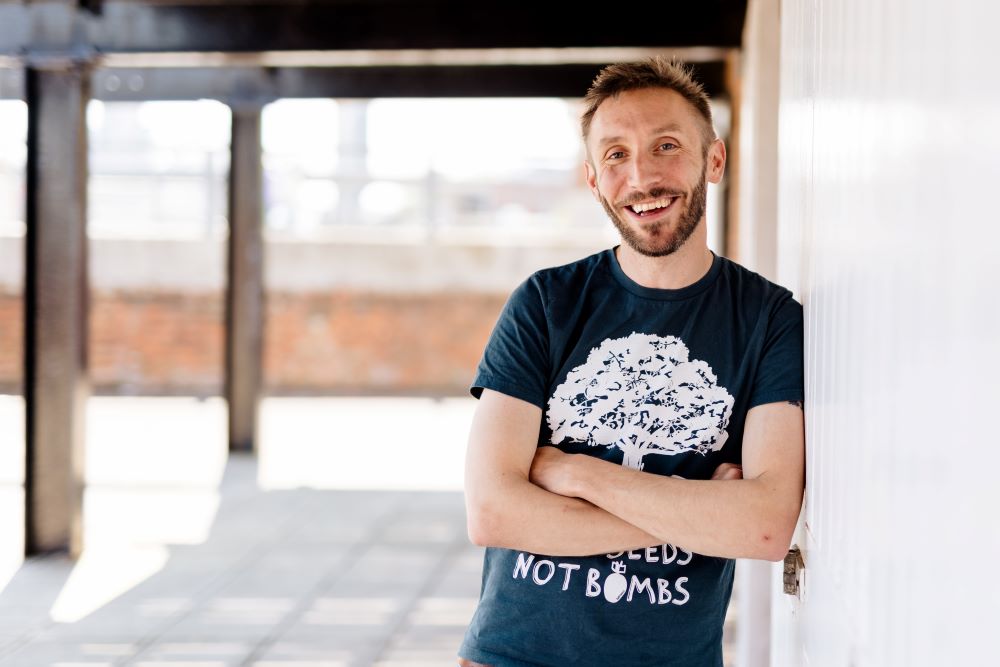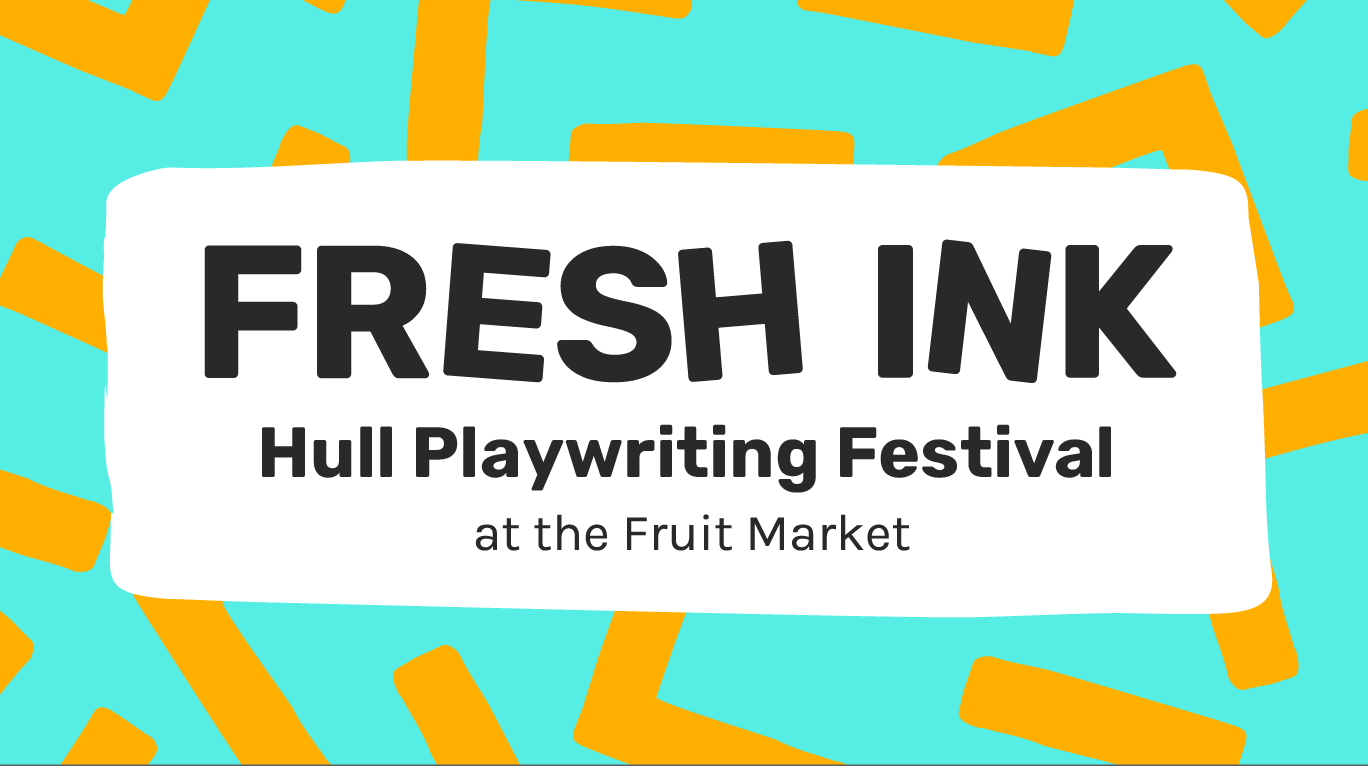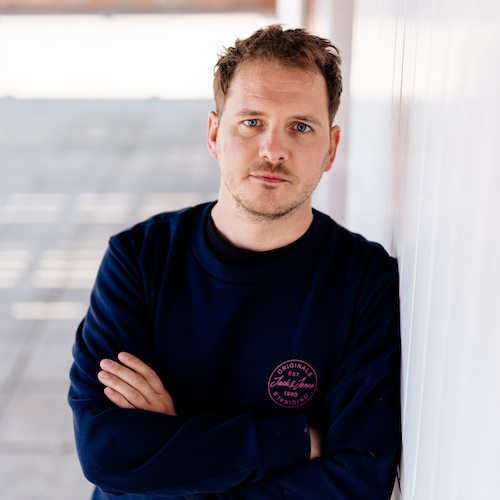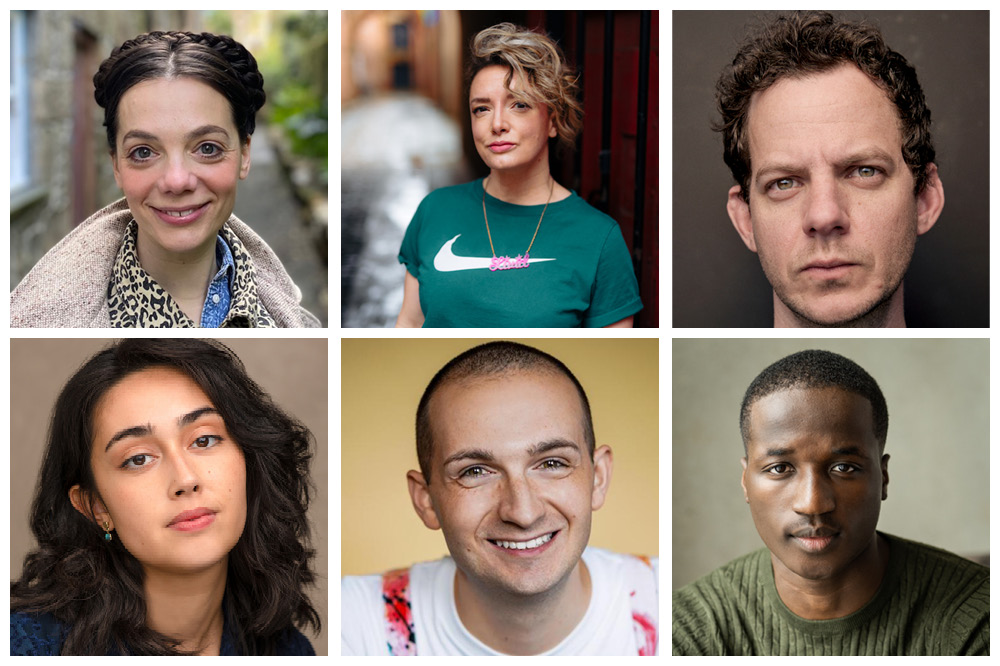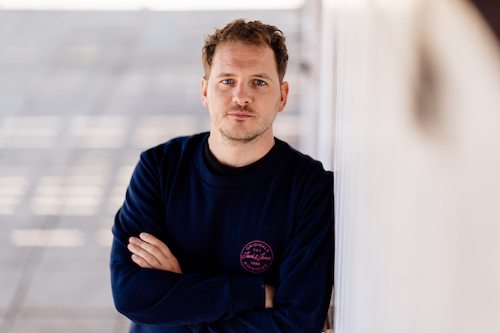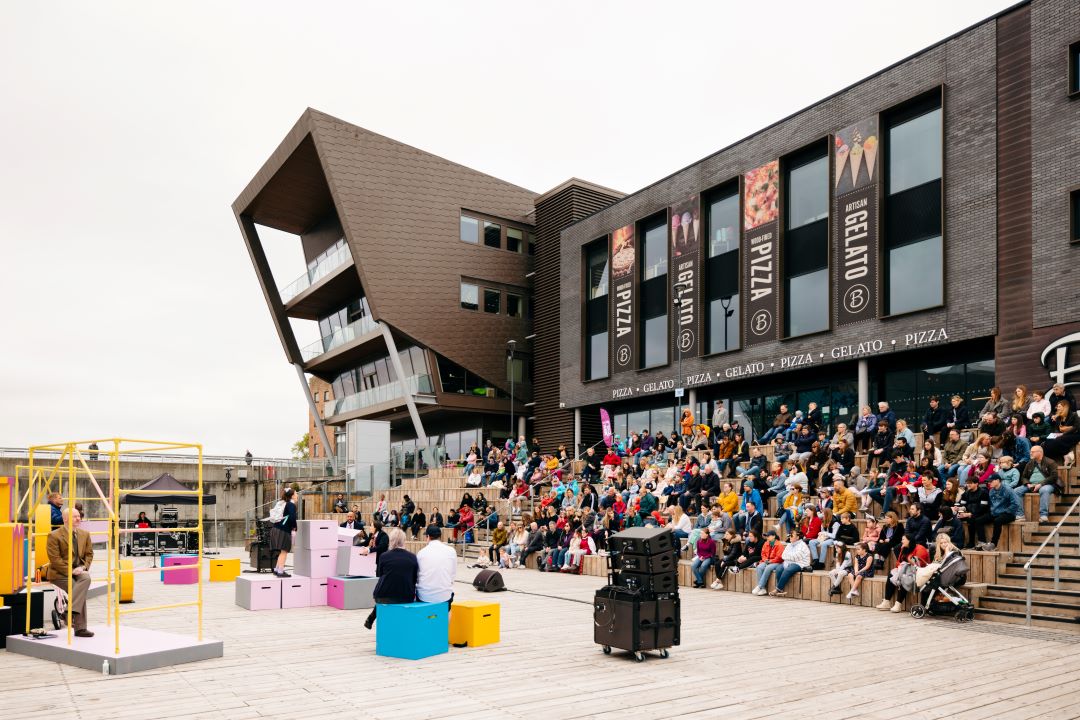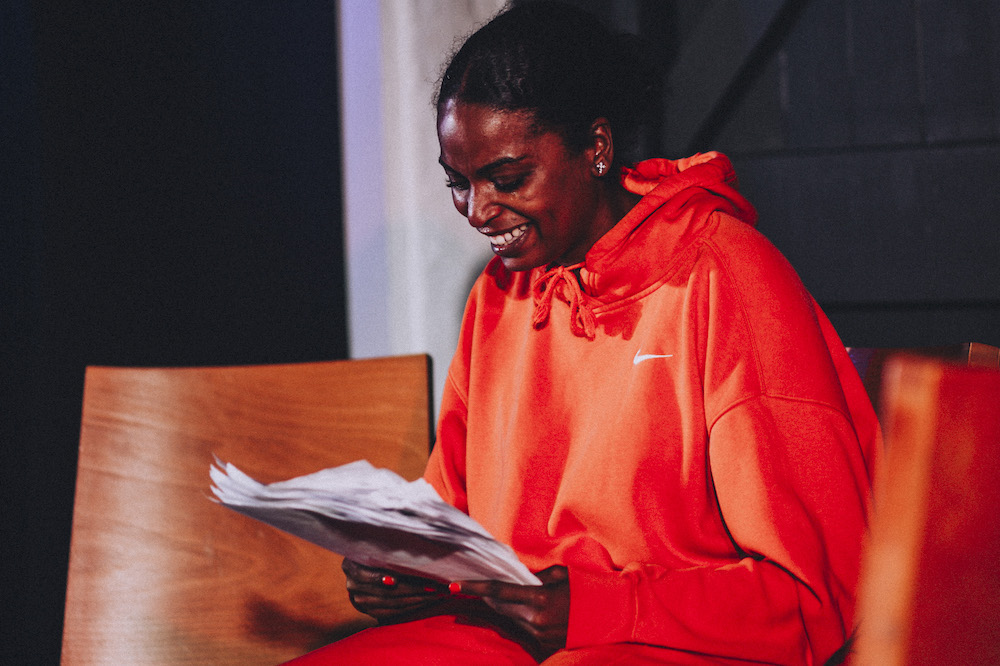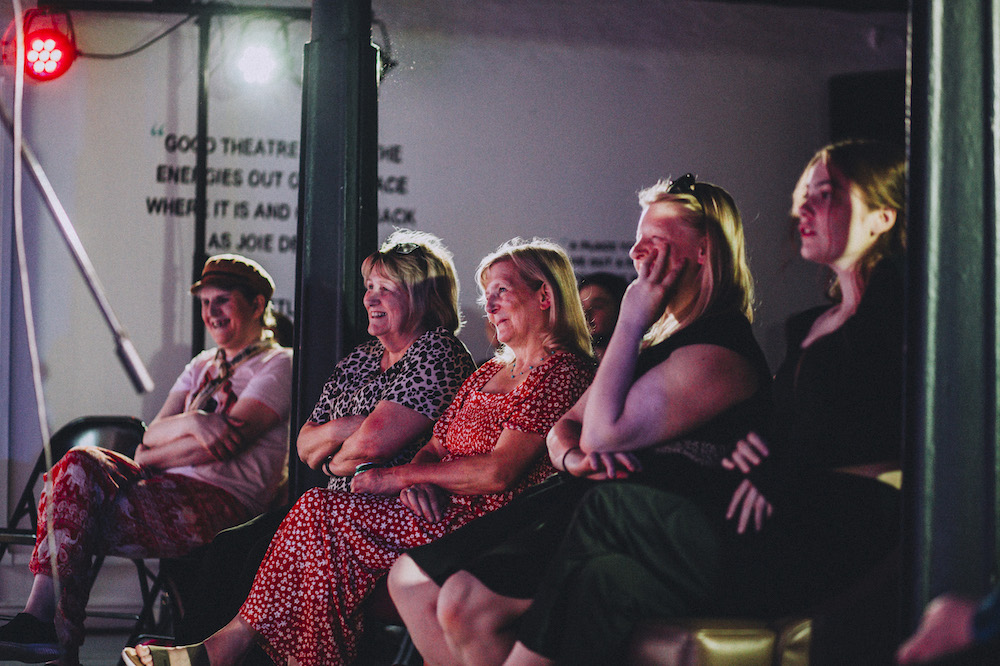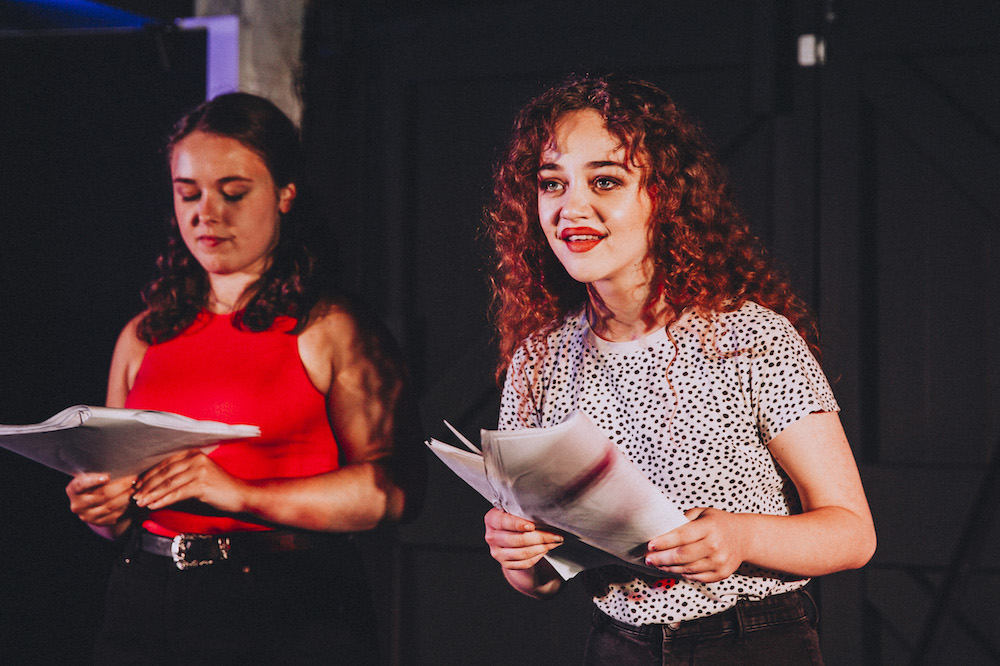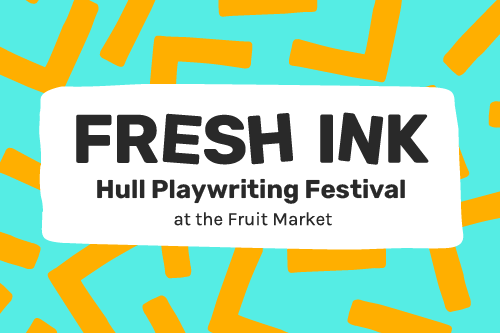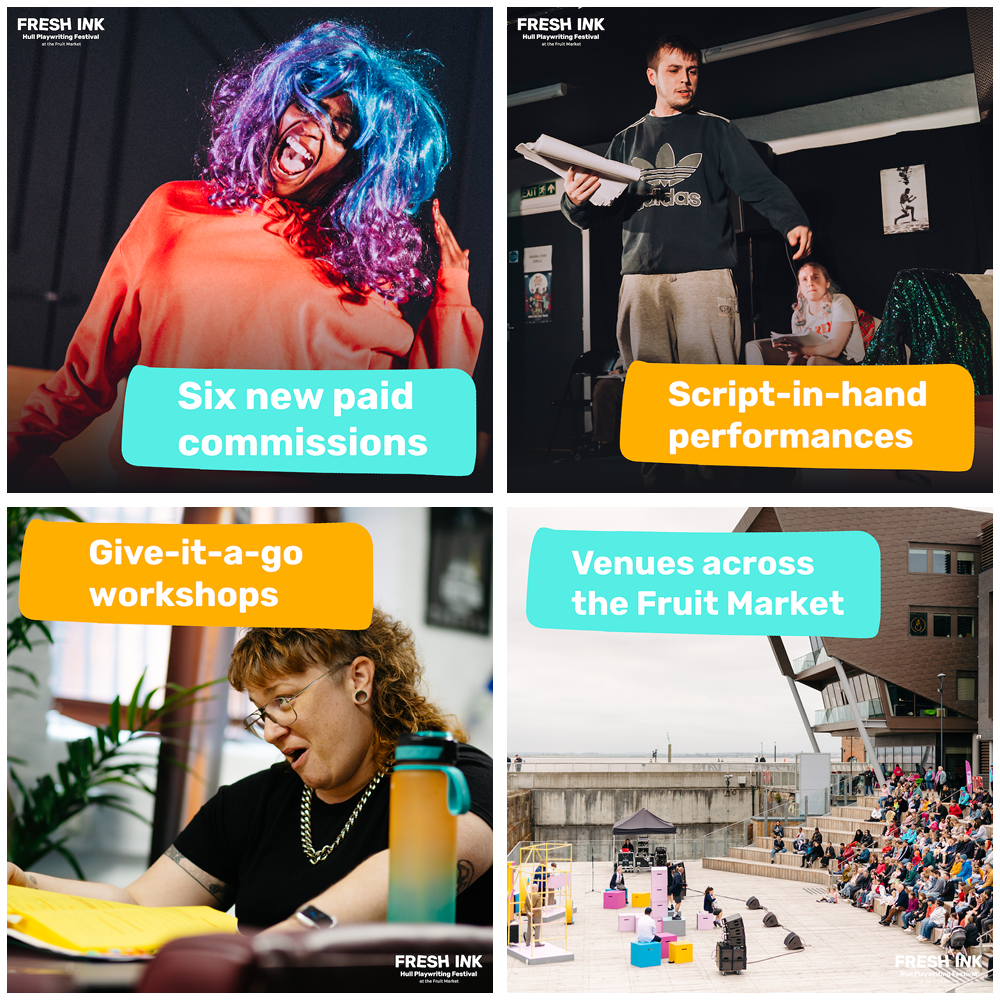Meet the writers
Rosie Race is an actor and writer from Hull, who is now based in Plymouth.
She works as a movement director and is associate artist at Theatre Royal Plymouth, where her first full length show Us Against The World opened in February 2024.
Her play No Woman Is An Island is a perversely funny, absurd and moving portrayal of a pregnant woman on the brink of insanity.
Rosie said: “I’m super chuffed to be offered one of the writing commissions.
“I am both excited and a tad emotional about immersing myself in the place I grew up and returned to for the birth of my child and the first year of her life.
“Hull is so much a part of me but I’ve been away a while, and writing this play which has my hometown at its very heart feels like the perfect way to reconnect.”
Hannah Scorer is a writer from Hull, who first took part in Middle Child’s Writers’ Group in 2019 and last year shared a script at Out Loud, Middle Child’s scratch night with Silent Uproar. This is her first full-length commission.
Can We Be Friends? follows a single parent and her daughter as they both discover family doesn’t always look the way we’re told.
Hannah said: “Because I reached my mid-30s without ever writing creatively, I didn’t think it was something I’d ever do.
“The Middle Child Writers’ Group is where this story started, as a 10-minute monologue, so it’s incredibly exciting to have this chance to tell the whole story.”
Grace Waga Glevey is a theatre and television maker from Scunthorpe, who recently founded Hani Projects, a not-for-profit theatre and arts production company committed to developing and attracting new work in and to Humberside.
She has trained with the Old Vic as a young theatre maker and in Sheffield Theatres’ New Dramaturgs Group.
Her play Jack & Gill depicts an unexpected friendship between two octogenarians, from vastly different walks of life, who wind up in the same crumbling Yorkshire care home.
Grace said: “I’m so excited to work with Middle Child on my debut play. It feels like my play has found its natural home here, with a company that champions new work in the area in which it is set.
“The story is inspired by Scunthorpe, and my family’s working heritage; particularly my mum, a generous and devoted carer her entire working life, and my uncle, a gifted sheet metal worker.”
Marc Graham is an actor from Hull, who also took part in Middle Child’s 2019 Writers’ Group. This is his first commission as a writer.
Isabelle tells the story of a family coming together at Christmas for the first time in ten years, bringing not only themselves but unwelcome remnants of their past lives.
Marc said: “I think a lot of people have the feeling that they’ve been sitting on a play for years, but don’t know how to uncover that. I feel incredibly lucky to be given the opportunity to attempt to do just that.
“I don’t have it all planned out ready to go, I don’t really know what I’m doing, but I’m excited to figure it out.”
Hull-born Andrew Houghton is a co-founder of Pink Milk Theatre, who most recently toured their solo show, Naughty. This is their first commission as a writer.
Phobia depicts a father and their child on their annual trip to Hull Fair. When a ride malfunction leaves the pair stranded high in the air, a very panicked dad requires constant conversation to keep his nerves under control.
Andrew said: “I am delighted to have been given the opportunity to work with Middle Child and debut my first professional writing commission in my home city.
“Spotlighting queer experiences I didn’t have the words for growing up, in the city I grew up in, is such a personal triumph.”
Prince Kundai is a Hull-raised creative who made his acting debut in the critically-acclaimed production of Bootycandy at the Gate Theatre London.
Fresh Ink marks Prince Kundai’s first venture in writing, with an African coming of age story about a young girl and the dynamics between her, her small family and the world around them.
Prince said: “To be commissioned for the first time is quite the feeling. A new journey along a road many have taken before you and to have your first step be upon a milestone? A first commission? Well, that really is quite something.
“Hull is a cornerstone of my identity and to be working here is both an honour and a privilege.”
A new festival to support Hull theatre making
The six writers were selected by a festival steering group that included representatives from Wykeland Group, Hull Truck Theatre, Back to Ours, freelance artists and local business people.
Fresh Ink: Hull Playwriting Festival will become an annual platform for Hull writers to create and develop new plays in the city.
Middle Child artistic director and chief executive, Paul Smith, said: “When Wykeland first approached Middle Child to explore an idea to support creative skills development in Hull, we knew there was huge potential to build something which could meet genuine need and last long into the future.
“The 130 submissions we received as part of Fresh Ink’s first open call are evidence of this, going far beyond our wildest dreams and proving that exceptional writing talent exists in Hull and needs a platform to match its undoubted potential.
“We were blown away by the creativity, confidence and craft of the local writers who applied this time around and it is no exaggeration to say that we could have commissioned enough plays to fill the festival ten times over.
“We are delighted to announce these six commissions and cannot wait to bring these exceptional ideas to life. Each one is full of the heart, humour and hope that echoes around this city, and we are sure they will resonate with the people of Hull.”
Middle Child hope the festival will attract producers, venues and critics from outside of Hull to experience theatre by artists who may go unnoticed in the current climate.
Paul Smith added: “We are particularly proud to work alongside our founding partners Wykeland and initial funders Wykeland and J F Brignall Charitable Trust to support the development of new writing at a time of great risk.
“Opportunities for freelance artists are becoming scarcer, with institutions such as the Vault Festival closing due to the challenging economic climate.
“We must continue advocating for the power and importance of untold stories from unheard voices, and the wider importance of culture in a thriving society.
“I am in no doubt that our first Fresh Ink festival will once again demonstrate the transformative power of culture and showcase what is possible when art made by local people is meaningfully supported.”
The 2024 event will be run as a pilot, so Middle Child can learn what works best and improve on it for the following years.
Dominic Gibbons, managing director of Wykeland Group, said: “Wykeland are delighted to be the co-founders and sponsors of the new Fresh Ink: Hull Playwriting Festival.
“We approached Middle Child following their highly successful There Should Be Unicorns production, which we sponsored and they performed at Stage@TheDock in the summer of 2022, to see if we could work together to create something that would have a deep cultural impact on the city and the people in it.
“Fresh Ink gives the opportunity for writers of all levels to expand their skill set and have their work performed at Stage@TheDock, a venue we opened in 2016 with the aim of it being used as a platform to develop new and exciting work.”
The full festival programme will be announced in June, with tickets for performances and workshops on-sale thereafter.
- Read more about the writer selection process, in a blog post from Middle Child literary manager, Matthew May

